100 Masters in Accounts & Finance Courses in Australia- Apply Now!
A Master’s in Finance in Australia is a popular choice for students looking to build a strong career in banking, investment, and financial management. The program focuses on key financial concepts such as risk management, financial analysis, and corporate finance, preparing students for global job opportunities.
Generally, a Master’s in Finance program in Australia takes 1 to 2 years to complete, depending on the university and whether students enroll full-time or part-time. Some universities also offer accelerated programs that allow students to graduate faster.
For international students, the tuition fees for a Master’s in Finance in Australia range from INR 27.3L (AUD 49700) to INR 55.5L (AUD 100800) per year. The exact cost varies based on the university, course structure, and location. Scholarships and financial aid options are also available to help reduce expenses.
Want to know the best universities, career opportunities, and eligibility requirements for a Master’s in Finance in Australia? Read on to get all the details!
Key Highlights of Master's in Finance in Australia:
| Course Duration | 1 -2 years |
| Course Type | Full Time |
| Mode of study | On campus |
| Tuition Fees | INR 27.3L (AUD 49700) to INR 55.5L (AUD 100800) per year |
| Top Universities | |
| Visa Required | Australian Student Visa (Subclass 500) |
| Top Scholarships | University of Melbourne Graduate Scholarship Monash University International Merit Scholarship |
| Top Job opportunities | Equity Research Analyst Financial Controller Investment Banker Analyst |
What are the Top Universities for Masters in Finance in Australia?
Australia boasts several prestigious institutions offering exceptional Master’s in Finance programs. These universities are recognized globally for their academic excellence and are featured prominently in the QS World University Rankings 2025.
Here is a list of top Australian universities offering Master's in Finance programs, along with their QS World Rankings 2025 and approximate annual tuition fees:
| University | QS Accounting & Finance Ranking 2024 | Annual Tuition Fees |
| University of Melbourne | #24 | INR 30.5L (AUD 55424) |
| University of Wollongong | #151 - #200 | INR 30.6L (AUD 55656) |
| University of New South Wales (UNSW Sydney) | #20 | INR 33L (AUD 60500) |
| Australian National University (ANU) | #42 | INR 29.5L (AUD 53700) |
| Monash University | #35 | INR 31L (AUD 56800) |
| University of Queensland | #61 | INR 29.5L (AUD 53760) |
| University of Western Australia | #101 - #150 | INR 55.5L (AUD 100800) |
| University of Adelaide | #101 - #150 | INR 27.5L (AUD 49900) |
| University of Technology Sydney | #90 | INR 42L (AUD 76464) |
| Macquarie University | #101 - #150 | INR 27.3L (AUD 49700) |
Note: The fees mentioned in the table are approximate and may vary as per the currency exchange rates.
What are the Intakes for Masters in Finance in Australia?
Australian universities provide multiple intakes for international students applying for a Master’s in Finance program. These intakes allow students flexibility in choosing when to begin their studies.
The primary intake periods typically include:
- Semester 1 (February/March): This is the main intake, with the largest number of universities accepting applications.
- Semester 2 (July/August): A secondary intake is available at many universities, offering another chance to apply.
Below is a table detailing the intake periods for top universities offering Master’s in Finance in Australia:
| University | Intake Deadlines |
| University of Melbourne | March, July |
| Australian National University (ANU) | February, July |
| University of Wollongong | February, August |
| University of Queensland | January, June |
| Monash University | February, July |
| University of New South Wales (UNSW) | February, June, September |
| University of Western Australia | February, July |
| University of Adelaide | February, July |
| University of Technology Sydney (UTS) | Autumn, Spring |
| Macquarie University | January, April, June, September |
Note: Application deadlines vary by university. It is recommended to check official university websites and apply early to secure admission.
What is the Course Curriculum for Master's in Finance in Australia?
A Master’s in Finance in Australia provides students with in-depth knowledge of financial markets, investment strategies, risk management, and corporate finance. The curriculum is designed to equip students with both theoretical and practical skills, preparing them for careers in banking, asset management, and financial consulting.
Core Subjects in the Master's in Finance Program:
- Financial Management: Understanding corporate finance, capital budgeting, and financial planning.
- Investment Analysis: Learning about stocks, bonds, portfolio management, and asset pricing.
- Risk Management: Techniques to identify, assess, and mitigate financial risks.
- Corporate Finance: Exploring capital structure, mergers, acquisitions, and financial decision-making.
- Econometrics and Quantitative Finance: Applying statistical models to financial data analysis.
- Derivatives and Financial Instruments: Studying futures, options, and hedging strategies.
- International Finance: Understanding global financial markets and exchange rate policies.
- Financial Technology (FinTech): Exploring blockchain, digital banking, and AI in finance.
What Are the Admission Requirements & Eligibility Criteria for Masters in Finance in Australia?
The admission process to study in Australia requires students to meet specific academic, language, and professional criteria. Universities evaluate applicants based on their educational background, work experience (if applicable), and standardized test scores. International students must also demonstrate English language proficiency.
To apply for a Master’s in Finance in Australia, students typically need to meet the following requirements:
- A bachelor’s degree in finance, economics, business, or a related field from a recognized university.
- A minimum GPA or percentage requirement, which varies by university.
- Some universities may require work experience, though it is often optional.
- English language proficiency such as IELTS, TOEFL, or PTE scores are required for international students.
- Some universities may ask for a Statement of Purpose (SOP) and Letters of Recommendation (LORs).
What are the Documents Required?
When applying for a Master’s in Finance in Australia, students need to submit the following documents:
- Academic transcripts and degree certificates from previous institutions.
- Proof of English language proficiency (IELTS/TOEFL/PTE score report).
- Statement of Purpose (SOP) explaining career goals and motivation for the program.
- Letters of Recommendation (LORs) from professors or employers.
- A detailed resume/CV, especially if work experience is required.
- A copy of the passport and student visa (after acceptance).
Standardized Tests Required for Masters in Finance in Australia
The table below outlines the standardized tests required for admission to a Master’s in Finance in Australia, including minimum score requirements:
| Test Name | Minimum Score Required |
| IELTS | 6.5 – 7.0 (Overall Band) |
| TOEFL iBT | 85 – 100 |
| PTE Academic | 58 – 65 |
| GMAT | 600+ (if required) |
| GRE | 310+ (if required) |
What is the Admission Process for Masters in Finance in Australia?
Applying for a Master’s in Finance in Australia involves several key steps. This process ensures that applicants meet academic and language requirements and provide the necessary documentation.
Take a look at what you need to do:
Step 1. Research Programs:
- Find universities in Australia that offer a Master’s in Finance and review their specific admission requirements and deadlines.
Step 2. Prepare Required Documents:
- Gather your academic transcripts, degree certificates, proof of English proficiency (like IELTS or TOEFL scores), and any additional documents such as a Statement of Purpose (SOP) or Letters of Recommendation (LORs).
Step 3. Submit an Online Application:
- Complete the online application form on the university’s website. Make sure to double-check all details before submitting.
Step 4. Pay Application Fees:
- Pay the non-refundable application fee as required by the university.
Step 5. Attend Interviews (if required):
- Some universities might require an interview as part of their selection process. Prepare well to make a strong impression.
Step 6. Receive Offer Letter:
- If accepted, you’ll receive an offer letter. Follow the instructions to accept the offer and secure your spot.
Step 7. Apply for a Student Visa:
- Once admitted, apply for an Australian student visa. You’ll need your offer letter and other documents for this step.
What is the Visa Process for Masters in Finance in Australia?
International students, including those from India, who want to pursue a Master’s in Finance in Australia must apply for the Australian Student Visa (Subclass 500). This visa allows students to study full-time at an Australian university and stay in the country for the duration of their program.
The visa application process requires students to submit important documents, show proof of financial stability, and meet English language requirements. To avoid delays, students should apply at least 3–4 months before their course begins.
Documents Required for Australian Student Visa (Subclass 500):
- Confirmation of Enrollment (CoE) from an Australian university.
- A valid passport (must be valid for the entire course duration).
- Proof of English language proficiency (IELTS/TOEFL/PTE scores).
- Genuine Temporary Entrant (GTE) statement, explaining the intent to study in Australia.
- Proof of sufficient funds to cover tuition fees, living expenses, and travel.
- Overseas Student Health Cover (OSHC) – Mandatory health insurance for international students.
- Academic transcripts and certificates.
- Visa application fee payment receipt.
- Medical examination and health check-up reports, if required.
What is the Cost of Studying Masters in Finance in Australia?
Pursuing a Master’s in Finance in Australia involves several expenses, including tuition fees, living costs, visa fees, and other miscellaneous expenses. The total cost varies depending on the university, city, and lifestyle choices of the student.
The table below provides an estimated breakdown of the costs:
| Expense Category | Estimated Cost (per Year) |
| Tuition Fees | INR 27.3L (AUD 49700) - INR 55.5L (AUD 100800) |
| Living Costs (Rent, Food, Transport, etc.) | INR 10.5L (AUD 19188) |
| Student Visa (Subclass 500) Fee | INR 88,000 (AUD 1,600) |
| Overseas Student Health Cover (OSHC) | INR 27,500 (AUD 500) – INR 38,500 (AUD 700) |
| Books & Study Materials | INR 27,500 (AUD 500) – INR 55,000 (AUD 1,000) |
| Miscellaneous Expenses (Entertainment, Internet, etc.) | INR 1L (AUD 2,000) – INR 2L (AUD 4,000) |
Note: The costs mentioned in the table are approximate and may vary based on currency exchange rates.
Also Read: Cost of living in Australia
What are the Top Scholarships for Masters in Finance in Australia?
International students pursuing a Master’s in Finance in Australia can apply for various scholarships to reduce their financial burden. These scholarships are offered by universities, government bodies, and private organizations based on academic merit, financial need, or specific eligibility criteria.
The table below highlights some of the top scholarships available for international students:
| Scholarship Name | Eligibility Criteria | Benefits |
| Australia Awards Scholarships | International students from eligible countries | Full tuition, living expenses, airfare |
| University of Melbourne Graduate Scholarship | High academic achievers applying for PG programs | 100% fee coverage up to AUD 135,000 (INR 74L) and living expenses. |
| Monash University International Merit Scholarship | Academic excellence, leadership skills | AUD 10,000 (INR 5.5L) per year |
| Macquarie University Vice-Chancellor’s International Scholarship | Excellent academic performance | Up to AUD 10,000 (INR 5.5L) tuition fee reduction |
| Sydney Scholars India Scholarship Program | High academic achievement, research potential | Up to AUD 40,000 (INR 22L) per year |
What are the Top Career Opportunities after Masters in Finance in Australia?
A Master’s in Finance from an Australian university opens doors to a wide range of high-paying career opportunities in the finance sector. Graduates can explore roles in investment banking, financial consulting, asset management, and corporate finance.
With Australia's strong financial market and global corporate presence, finance professionals are in high demand.
The table below highlights some of the top job roles along with their average annual salaries:
| Job Role | Average Annual Salary (INR) |
| Investment Banker Analyst | INR 96.8L (AUD 176000) |
| Financial Analyst | INR 57.7L (AUD 105000) |
| Risk Manager | INR 80.3L (AUD 146000) |
| Wealth Manager | INR 49L (AUD 89251) |
| Portfolio Manager | INR 65L (AUD 118801) |
| Treasurer | INR 88L (AUD 160000) |
| Financial Controller | INR 91.7L (AUD 166700) |
| Equity Research Analyst | INR 1.10 Cr (AUD 200000) |
| Credit Analyst | INR 50L (AUD 90775) |
| Actuary | INR 79.7L (AUD 145000) |
Sourced By: Glassdoor & Indeed
Note: The salaries mentioned in the table are approximate and may vary as per the location and currency exchange rates.
What are the Top Recruiters for Master in Finance Graduates in Australia?
Graduates from leading Australian universities are hired by some of the world’s top financial institutions and corporations.
Here’s a table listing the top 10 recruiters for Masters in Finance graduates in Australia along with their respective industries:
| Recruiter | Industry |
| JPMorgan Chase | Investment Banking |
| Goldman Sachs | Investment Banking |
| Macquarie Group | Financial Services |
| Deloitte | Consulting & Advisory |
| PwC | Consulting & Advisory |
| BlackRock | Asset Management |
| HSBC | Banking & Financial Services |
| Vanguard | Investment Management |
| Allianz | Insurance & Risk Management |
| Commonwealth Bank of Australia | Banking & Financial Services |
Frequently Asked Questions
What is a Master’s in Finance in Australia?
A Master’s in Finance in Australia is a postgraduate degree designed to equip students with financial management, investment analysis, and risk management skills. The program typically takes 1 to 2 years to complete, depending on the university and study mode. It prepares students for careers in banking, investment, and corporate finance, offering global job opportunities.
What are the top universities for a Master’s in Finance in Australia?
Some of the best universities for a Master’s in Finance in Australia include the University of Melbourne, the University of Sydney, UNSW Sydney, Australian National University (ANU), Monash University, and the University of Queensland. These institutions are ranked among the top globally and provide high-quality education, strong industry connections, and excellent career opportunities.
How long does it take to complete a Master’s in Finance in Australia?
The duration of a Master’s in Finance program in Australia varies between 1 to 2 years. Full-time students usually complete the degree within a year, while part-time students may take up to two years. Some universities also offer accelerated programs that allow students to graduate faster by taking intensive coursework.
What are the English language proficiency requirements for a Masters in Finance in Australia?
International students must prove their English language proficiency by meeting the required scores in IELTS (6.5–7.0), TOEFL iBT (85–100), or PTE Academic (58–65). Some universities may accept alternative language tests or waive the requirement for students who have completed previous education in English-speaking institutions.
What are the intake periods for a Master’s in Finance in Australia?
Australian universities offer multiple intakes, primarily in February/March (Semester 1) and July/August (Semester 2). Some universities, like UNSW Sydney and Macquarie University, provide additional intakes in other months to offer flexibility to students. Application deadlines vary, so it’s important to check university websites for details.
What is the tuition fee for a Master’s in Finance in Australia?
The tuition fees for a Master’s in Finance in Australia range from INR 27.3L (AUD 49700) to INR 55.5L (AUD 100800)per year, depending on the university. Some prestigious universities may charge higher fees, while scholarships and financial aid options can help reduce the overall cost for eligible students.
What are the living expenses for international students in Australia?
The cost of living in Australia varies by city, with students typically spending around INR 10.5L (AUD 19188) per year on rent, food, transportation, and other essentials. Additional expenses include health insurance (OSHC), study materials, and entertainment, making proper financial planning essential for international students.
What are the career prospects after completing a Master’s in Finance in Australia?
Graduates can explore diverse career paths in banking, investment firms, financial consulting, asset management, and fintech industries. Popular job roles include financial analyst, investment banker, risk manager, and corporate finance manager. Australia’s strong economy and global financial market connections offer promising employment opportunities.
Are scholarships available for international students?
Yes, various scholarships are available for international students pursuing a Master’s in Finance in Australia. Scholarships like the Australia Awards, University of Melbourne Graduate Scholarship, and UNSW International Scholarships offer financial aid based on academic merit and financial need, covering tuition fees and living expenses.
What are the visa requirements for international students?
International students must apply for the Australian Student Visa (Subclass 500) to study in Australia. The visa requires proof of enrollment (CoE), financial stability, English proficiency, a Genuine Temporary Entrant (GTE) statement, and health insurance (OSHC). It allows students to work part-time while studying.
What documents are required for admission to a Masters in Finance in Australia?
Students must submit academic transcripts, degree certificates, proof of English proficiency, a Statement of Purpose (SOP), Letters of Recommendation (LORs), and a resume/CV. Some universities may require GRE or GMAT scores, while others focus on work experience and personal statements for admission evaluation.
- Level of study
- Streams
- Countries
- Cities
- Fees
- Exams Accepted
- Course Duration
- Masters
- Clear All

Graduate Certificate in Accounting
University of Canberra, Australia
This program is designed for students who may have an overseas accounting qualification and are required to undertake 4 units (12cp) to meet the requirements of the award. Students entering this award must have their qualifications assessed by either CPA Australia or Chartered Accountants of Australia and New Zealand to identify the unit set required to meet accreditation requirements. As an individual award, the Graduate Certificate in Accounting does not meet accreditation requirements for the accounting professional bodies.
DURATION
6 MonthsFEES
INR 10.97L (Total)EXAMS
IELTS-6.5INTAKE SESSION
JUL 2025
More courses at University of CanberraView All

Master of Professional Accounting
Murdoch University, Australia
From mining to music, accounting is vital to every organisation in every industry. It's an essential part of an organisation's decision-making, planning, and even performance evaluation. Learn how to solve problems, negotiate and become a trusted and respected decision-maker in any industry. After completing this course, you can apply to become a member of professional accounting bodies, including CPA Australia, and Chartered Accountants Australia and New Zealand, if your goal is to work in professional accounting.
DURATION
1 YearFEES
INR 25.96L/yrEXAMS
IELTS-6.0INTAKE SESSION
AUG 2025
More courses at Murdoch UniversityView All
DURATION
2 YearsFEES
INR 30.47L/yrEXAMS
IELTS-6.0
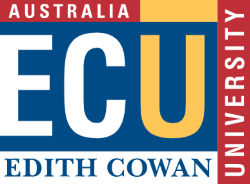
Master of Professional Accounting
Edith Cowan University, Australia
DURATION
2 YearsFEES
INR 34.64L/yrEXAMS
IELTS-6.5INTAKE SESSION
JUL 2025
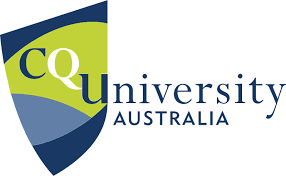
Graduate Certificate in Professional Accounting
CQUniversity Australia, Australia
DURATION
-FEES
INR 9.29L/yrEXAMS
IELTS-6.0INTAKE SESSION
JUL 2025
More courses at CQUniversity AustraliaView All
DURATION
1 YearFEES
INR 18.58L/yrEXAMS
IELTS-6.0
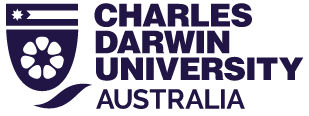
Master of Professional Accounting
Charles Darwin University (CDU), Australia
DURATION
1 Year 6 MonthsFEES
INR 27.37L/yrEXAMS
IELTS-6.5INTAKE SESSION
AUG 2025
More courses at Charles Darwin University (CDU)View All
DURATION
2 YearsFEES
INR 36.49L/yrEXAMS
IELTS-6.5

Master of Professional Accounting
Victoria University, Australia
DURATION
-FEES
INR 34.53L/yrEXAMS
IELTS-6.5INTAKE SESSION
AUG 2025

Graduate Certificate in Accounting
Southern Cross University, Australia
DURATION
6 MonthsFEES
INR 8.46L/yrEXAMS
IELTS-6.5INTAKE SESSION
JUN 2025
More courses at Southern Cross UniversityView All
DURATION
2 YearsFEES
INR 33.86L/yrEXAMS
IELTS-6.5

Master of Professional Accounting (Professional Practice)
Charles Sturt University, Australia
DURATION
2 YearsFEES
INR 35.64L/yrEXAMS
IELTS-6.0INTAKE SESSION
JUL 2025
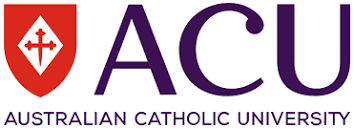
Master of Professional Accounting
Australian Catholic University ACU , Australia
DURATION
2 YearsFEES
INR 17.37L/yrEXAMS
-INTAKE SESSION
JUL 2025
More courses at Australian Catholic University ACU View All

Graduate Certificate in Accounting (Part Time)
University of New England, Australia
DURATION
2 YearsFEES
INR 8.58L/yrEXAMS
-INTAKE SESSION
JUN 2025
More courses at University of New EnglandView All
Recommended articles for you

Master of Professional Accounting
Federation University Australia, Australia
DURATION
2 YearsFEES
INR 32.52L/yrEXAMS
IELTS-6.0INTAKE SESSION
JUL 2025
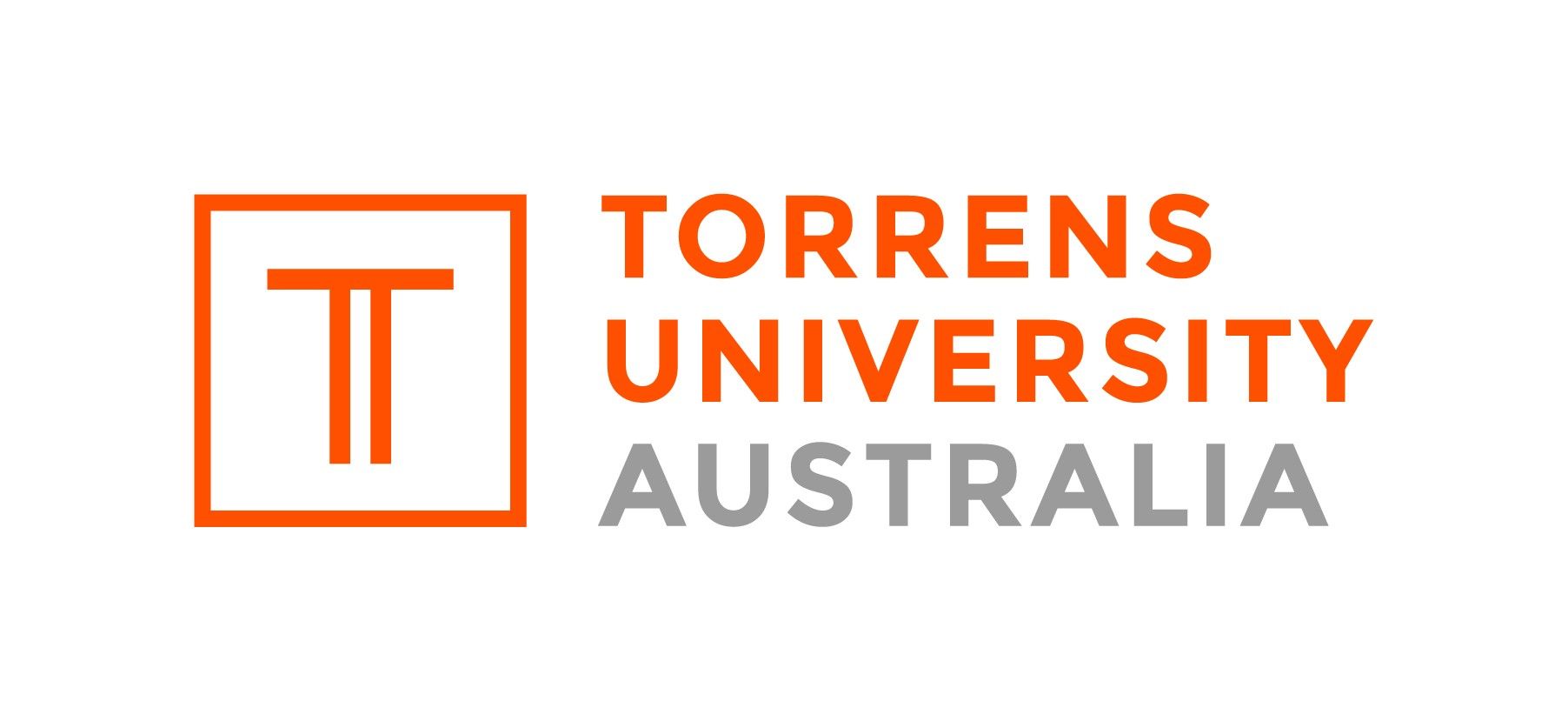
Master of Professional Accounting
Torrens University Australia, Australia
A Master of Professional Accounting covers accounting, auditing, finance, economics, information systems and tax law. Study with us and know that your course is CPA Australia and CAANZ accredited. Graduate prepared for a career in global accounting and financial organisations.
DURATION
1 Year 6 MonthsFEES
INR 26.85L (Total)EXAMS
IELTS-6.5INTAKE SESSION
JUN 2025
More courses at Torrens University AustraliaView All
DURATION
2 YearsFEES
INR 35.80L (Total)EXAMS
IELTS-6.5

Graduate Certificate in Accounting
Kaplan Business School Australia, Australia
DURATION
8 MonthsFEES
INR 6.15L/yrEXAMS
IELTS-6.0INTAKE SESSION
SEP 2024
More courses at Kaplan Business School AustraliaView All
DURATION
1 Year 7 MonthsFEES
INR 18.44L/yrEXAMS
IELTS-6.0
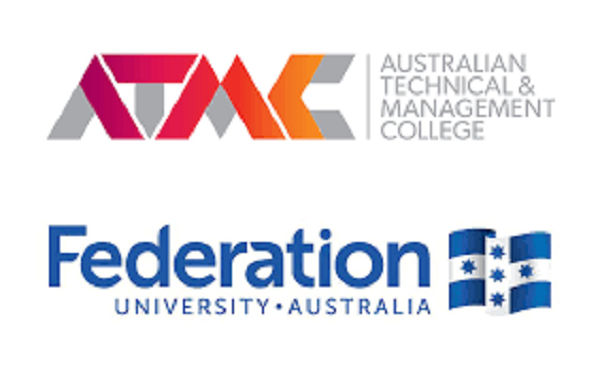
Graduate Certificate of Professional Accounting
ATMC - Federation University, Australia
DURATION
1 YearFEES
INR 16.04L/yrEXAMS
IELTS-6.0INTAKE SESSION
NOV 2024
More courses at ATMC - Federation UniversityView All
DURATION
1 Year 6 MonthsFEES
INR 24.06L/yrEXAMS
IELTS-6.0

Master of Professional and Practising Accounting
Melbourne Polytechnic, Australia
DURATION
2 YearsFEES
INR 21.83L/yrEXAMS
IELTS-6.5INTAKE SESSION
JUL 2025
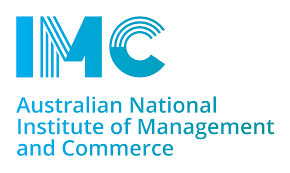
Graduate Certificate in Accounting
Australian National Institute of Management and Commerce (IMC), Australia
DURATION
6 MonthsFEES
INR 6.66L/yrEXAMS
IELTS-6.5INTAKE SESSION
AUG 2024
More courses at Australian National Institute of Management and Commerce (IMC)View All
DURATION
1 Year 6 MonthsFEES
INR 19.98L/yrEXAMS
IELTS-6.5
DURATION
2 YearsFEES
INR 26.64L/yrEXAMS
IELTS-6.5
TRENDING SEARCHES
- Study in Australia
- Universities in Australia
- Courses in Australia
- Masters in Australia
- Bachelors in Australia
- La Trobe University
- University of Adelaide
- Griffith University
- Melbourne Institute Of Technology
- Deakin University
- RMIT University
- Macquarie University
- The University of Melbourne Acceptance Rate
- UTS College Acceptance Rate
- Monash University
- Carnegie Mellon University
- University of Queensland
- Curtin University
- University of Sydney
- University of Melbourne
- University of Wollongong
- Flinders University
- Western Sydney University
- Public Health Courses in Australia
- Nursing Courses in Australia
- Medical Courses in Australia
- Project Management Courses in Australia
- Social Work Courses in Australia
- Cyber Security Courses in Australia
- Digital Marketing Courses in Australia
- Hotel Management Courses in Australia
- Diploma in Nursing in Australia
- Teaching Courses in Australia
- Accounting Courses in Australia
- Psychology Courses in Australia
- Bachelors in Mechanical Engineering in Australia
- Bachelors in Nursing in Australia
- Bachelors in Computer Science in Australia
- Bachelors in Information Technology in Australia
- Bachelors in Psychology in Australia
- Masters in Supply Chain Management in Australia
- Masters in Computer Science in Australia
- Masters in Pharmacy in Australia
- Masters in Nursing in Australia
- Masters in Engineering Management in Australia
- Masters in Social Work in Australia
- MS in Australia
- Masters in Business Analytics in Australia
- Masters in Data Science in Australia
- Masters in Education in Australia
- Masters in Management in Australia
- Masters in Project Management in Australia
- Masters in Psychology in Australia
- Masters in Construction Management in Australia
- Masters in Information Technology in Australia
- Masters in Public Health in Australia
- University of Sydney Courses
- Monash University Courses
- Flinders University Courses
- Curtin University Courses
- University of Queensland Courses
- Edith Cowan University Courses
- Western Sydney University Courses
- Griffith University Courses
- University of Melbourne Courses
- Duolingo English Test Accepted University
- Duolingo Accepted University In Australia
- GMAT Exam
- Gmat Exam Syllabus
- The Need To Belong IELTS Reading Answers
- Duolingo Test Fees
- Duolingo English Test
- ACT Exam
- A Spark A Flint IELTS Reading Answers
- Cleaner Abundant IELTS Reading Answers
- Duolingo Language Certificate
- Animal Camouflage IELTS Reading Answers
- SAT Exam
- Describe A Good Law In Your Country IELTS Cue Card
- Population Movements And Genetics IELTS Reading Answers
- Mba Without GMAT In UK
- Duolingo Accepted Universities In Canada For 2023
- List Of Universities That Waived Off Gre For Fall 2023
- Usmle Centers In India
- GRE Documents Required
- A Song In The Brain IELTS Reading Answers
- SAT Exam Syllabus For Indian Students
- PTE Exam
- OET Test
- Difference between Duolingo and IELTS
- Gmat Eligibility
- Gmat Fees
- GRE Exam
- GRE Exam Syllabus
- MBA in Australia Cost
- Best Universities in Australia
- Study in Ireland
- Study in Finland
- Why Study in Australia
- SOP for Australia
- Cost of Study in Australia
- Masters in Artificial Intelligence in Australia
- Masters in Cyber Security Australia
- Study in Australia
- Study in Germany
- How Much Gap Is Accepted for Study in Australia
- Study in Canada
- Top Cities of Australia
- How to Study in Australia from India
- Requirements for Studying in Australia
- Exams for MS in Australia
- Cost of Living in Australia
- Sample SOP for Australia
Disclaimer
All information provided on this page is for general use and upGrad Abroad is not responsible for any errors or omissions. The Universities involved in this Program are accredited/recognized in the countries where they are established. Relevant terms and conditions apply.Any action taken upon the information found on this website is strictly at your own risk.



